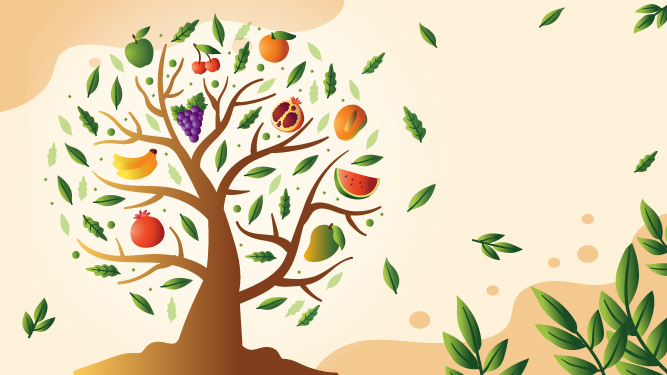DCNR recognizes that its mission is best advanced by including people of diverse backgrounds, beliefs, and cultures.
Please read on to learn how one such culture values trees and forests and actively advances our cause.
Tu Bishvat is a Jewish holiday occurring on the fifteenth day of the Hebrew month of Shevat.
This year, it falls on February 6, 2023. It is known as the Jewish “New Year for Trees” or “Birthday of the Trees.”
Historical Beginnings of Tu Bishvat

Historically, this was not a celebratory festival. It started in biblical Israel, when it was merely a date on the calendar that helped Jewish farmers establish exactly when they should bring their fourth-year produce of fruit from recently planted trees to the Temple as first-fruit offerings.
After this, all subsequent fruit produced from these trees could be eaten or sold as desired. This date was chosen because the majority of the annual rainfall has usually already fallen by this time in Israel, resulting in a healthy, water-logged soil in which to plant new trees.
After the destruction of the Second Temple in 70CE, when there were no longer offerings to be made, the kabbalists or mystics created a new ritual for Tu Bishvat, called the “Feast of Fruits.”
Fruit trees were revered because of their importance in sustaining life; in times of war, trees bearing fruit were not to be destroyed.
Participants ate fruits and nuts traditionally associated with Israel: wheat, barley, grapes, figs, pomegranates, olives, and dates.
Kabbalists also highlighted almonds, since almond trees were believed to be the first of all trees in Israel to blossom.
When early Zionists started to move to Israel in the late 19th century, they confronted a land denuded of trees.
These settlers used Tu Bishvat as an opportunity to focus on tree planting to restore the ecology of Israel.
Modern Observances of Tu Bishvat

This tree planting tradition continues to this very day, not only in Israel, but in the United States.
The holiday is viewed as an occasion to educate the Jewish people about their tradition’s advocacy of responsible stewardship of the land, and to care for the environment.
In modern times, Tu Bishvat is considered by many to be an example of Jewish sensitivity to the environment.
Traditionally, communities and families organize planting activities.
In essence, it is an ancient and authentic Jewish “Earth Day” that educates about the Jewish tradition of advocacy of responsible stewardship of the land, as manifested in ecological activism.
Learn more about Tu Bishvat at the My Jewish Learning website.